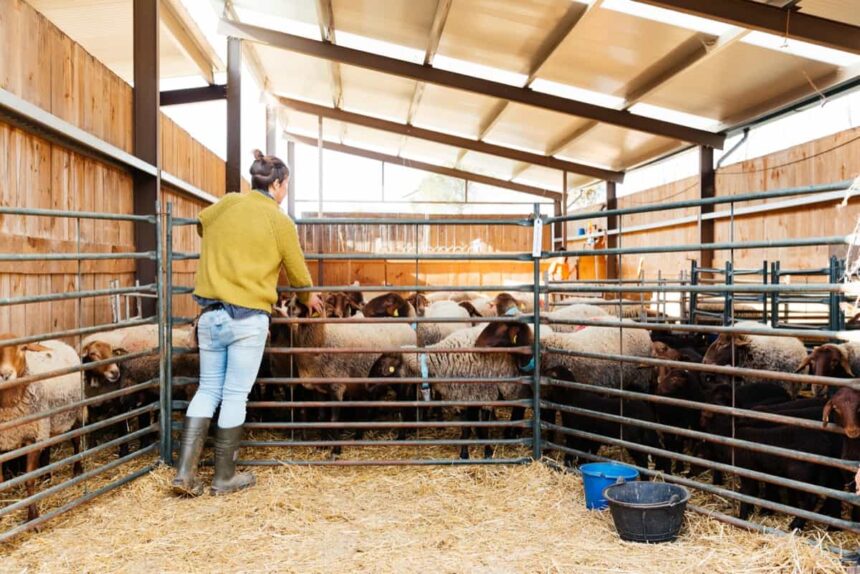In today’s digital age, advancements in breeding techniques have revolutionized the industry, allowing farmers to enhance superior genetics and improve overall herd quality. From advanced breeding techniques to precision agriculture and real-time health monitoring systems, modern sheep farming technology is revolutionizing the industry in ways we never thought possible. It is paving the way for a more efficient, sustainable, and profitable industry.
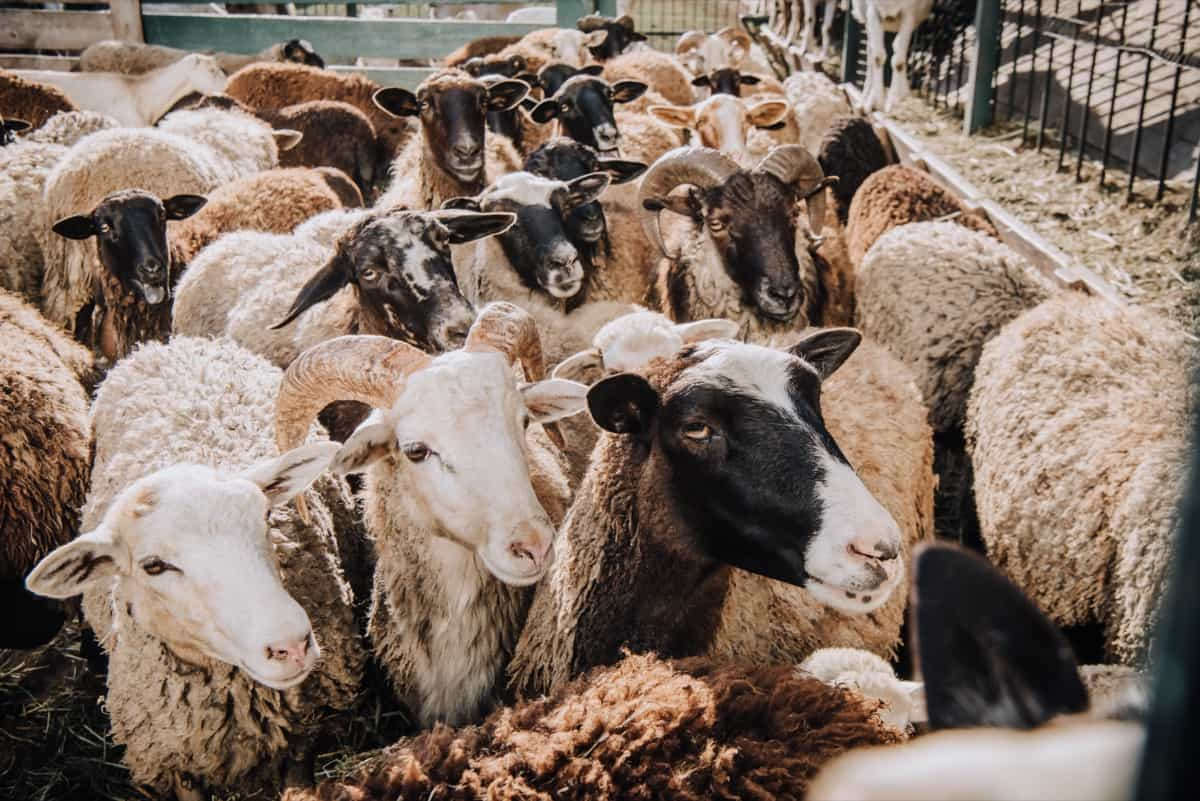
Advanced Breeding Techniques for Superior Sheep Genetics
Advanced breeding techniques play a crucial role in enhancing the genetic qualities of the flock. Through selective breeding, farmers can ensure superior traits like disease resistance, wool quality, and reproductive efficiency are passed down to future generations of sheep. By utilizing technologies such as artificial insemination and embryo transfer, farmers can accelerate the breeding process to achieve desired genetic outcomes more efficiently. This results in healthier and more productive sheep that contribute to sustainable farming practices.
Genomic selection is another cutting-edge tool that allows farmers to analyze an individual sheep’s DNA for specific traits before deciding on mating pairs. This precision breeding approach helps create a flock with desirable characteristics tailored to meet market demands while minimizing environmental impact. Advanced breeding techniques improve the overall quality of the herd and contribute to the long-term success and profitability of modern sheep farming operations.
Precision Agriculture: Revolutionizing Sheep Farming
Precision agriculture is reshaping the landscape of sheep farming by integrating technology for optimized production. By utilizing GPS, sensors, and data analytics, farmers can now tailor their strategies based on real-time information. Precision agriculture techniques are more efficient, and sheep receive individualized care. Monitoring systems track each animal’s behavior, enabling prompt intervention when needed. This personalized approach enhances overall flock welfare while reducing unnecessary costs.
Moreover, drones and satellite imagery help farmers monitor pastures with unparalleled accuracy. Identifying areas in need of attention becomes seamless, allowing for targeted interventions that benefit both the sheep and the land they graze on. In this digital era, precision agriculture is revolutionizing sheep farming by empowering producers with valuable insights and tools to ensure sustainable practices for future generations.
Smart Feeding Solutions for Enhanced Sheep Nutrition
Smart feeding solutions have revolutionized the way we enhance sheep nutrition. Through innovative advancements, farmers can now tailor feed formulations to meet specific nutritional requirements for optimal health and performance. Automated feeding systems utilize data analytics to monitor individual sheep’s dietary needs and adjust feed accordingly. This precision ensures that each animal receives the ideal balance of nutrients for their well-being.
In case you missed it: Top 20 Goat and Sheep Weight Gain Supplements: Best Sheep and Goat Weight Gain Formulas
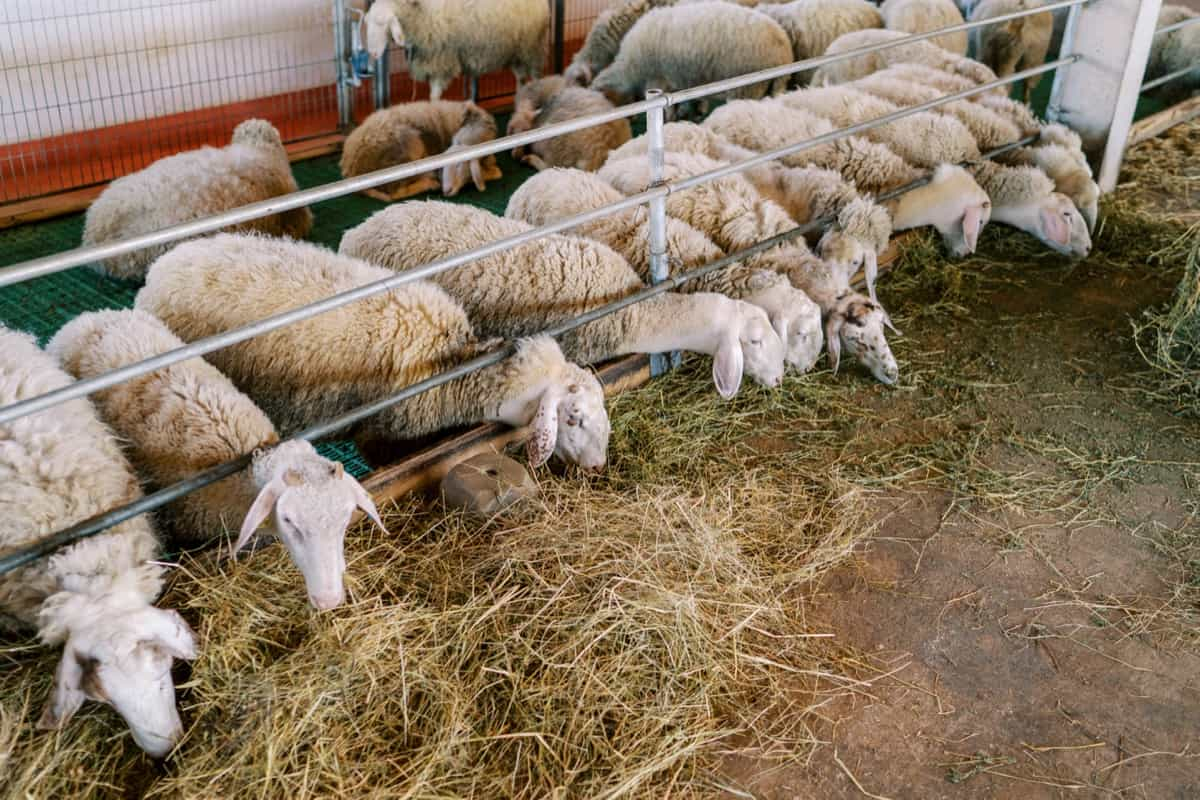
Smart feeders not only streamline the feeding process but also minimize wastage by delivering precise portions at scheduled intervals. This efficiency leads to cost savings for farmers while promoting sustainable practices in sheep farming. By incorporating smart feeding solutions into their operations, farmers can improve overall flock health, boost productivity, and achieve better outcomes in terms of meat or wool production.
Real-Time Health Monitoring Systems for Sheep
These advanced systems allow farmers to keep a close eye on the well-being of their flock around the clock. Real-time health monitoring systems for sheep allow farmers to closely monitor their animals’ well-being, enabling early detection of any potential health issues. Equipped with sensors and wearable devices, these monitoring systems provide valuable insights into vital signs, activity levels, and overall health status of each sheep.
By detecting any anomalies or signs of distress early on, farmers can intervene promptly and prevent potential health issues from escalating. By implementing these advanced monitoring technologies, farmers can proactively address health problems before they escalate, leading to healthier and more productive flocks. Imagine being able to receive instant alerts on your smartphone if a sheep shows any abnormal behavior or health indicators.
These innovative solutions enhance animal welfare and increase farm efficiency. Farmers can make informed decisions quickly, optimize feeding schedules based on individual needs, and minimize the use of antibiotics through targeted treatments. Farmers can make informed decisions regarding nutrition adjustments, medication administration, or veterinary care as needed. The integration of technology in healthcare management enhances productivity and ensures that each sheep receives personalized care tailored to its specific needs.
Sustainable Grazing Management in Modern Sheep Farming
Sustainable grazing management plays a crucial role in ensuring the health of the flock. By implementing rotational grazing techniques, farmers can optimize pasture utilization while allowing vegetation to regrow effectively. This practice improves soil health and also reduces erosion and runoff, contributing to overall environmental sustainability.
In case you missed it: Sheep Manure Production and Waste Management
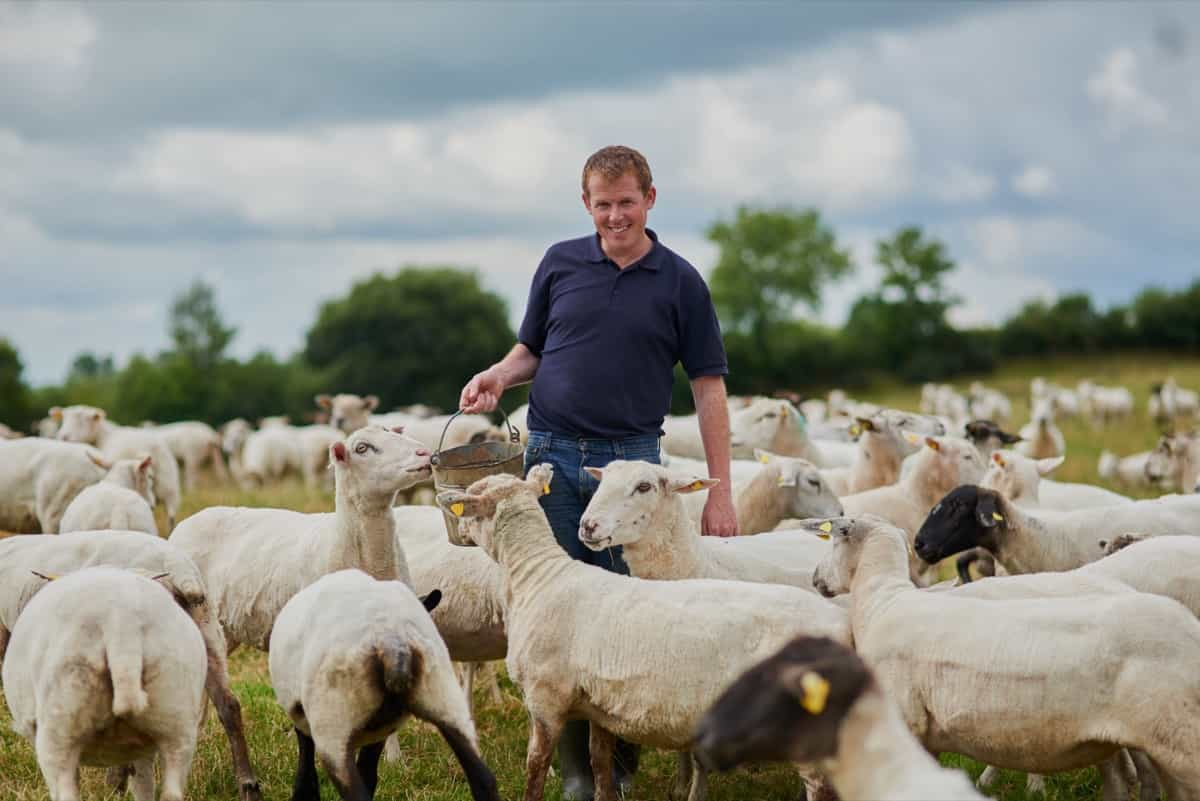
Utilizing GPS technology, farmers can create precise grazing patterns that prevent overgrazing and promote natural regeneration. Sustainable grazing management is a key aspect of modern sheep farming, ensuring the health of both the animals and the land they graze on. By implementing rotational grazing practices, farmers can prevent overgrazing in specific areas while allowing vegetation to regenerate naturally.
This not only benefits the environment but also improves the quality of forage available to the sheep. Furthermore, strategic pasture planning helps optimize land use efficiency by rotating pastures based on seasonal changes and the flock’s varying nutritional needs. This approach minimizes soil erosion, promotes biodiversity, and reduces reliance on chemical inputs.
Innovative technologies such as GPS tracking systems enable farmers to monitor grazing patterns in real time, allowing for precise management decisions that enhance sustainability. Furthermore, incorporating diverse plant species within pastures encourages biodiversity and enhances soil fertility. This leads to healthier sheep with access to a varied diet rich in essential nutrients.
The Role of Automated Shearing in Efficient Wool Production
Automated shearing technology not only increases efficiency but also ensures a more humane process for the sheep. By utilizing robotics and advanced machinery, farmers can shear their flocks with precision and speed, reducing stress on both the animals and the workers involved. This results in higher-quality wool that is cleaner and less prone to contamination. Automated shearing systems are equipped with sensors and algorithms that optimize the shearing process based on individual sheep’s needs.
This customized approach leads to better fleece quality and overall animal welfare. With this cutting-edge technology at hand, sheep farmers can streamline their operations, increase productivity, and ultimately contribute to a more sustainable future for wool production. The role of automated shearing in efficient wool production is undeniably crucial in shaping the modern landscape of sheep farming.
High-Tech Housing Solutions for Sheep Comfort and Safety
High-tech solutions have revolutionized the way we design and maintain sheep shelters. Innovative climate control systems ensure that sheep are kept in optimal conditions year-round, regardless of the external weather. This helps to improve overall well-being. Advanced ventilation systems help to regulate air quality within the housing facilities, preventing respiratory issues and promoting better health among the flock.
In case you missed it: Key Rules to Improve Feed Conversion Ratio (FCR) in Sheep: For Profitable Sheep Farming
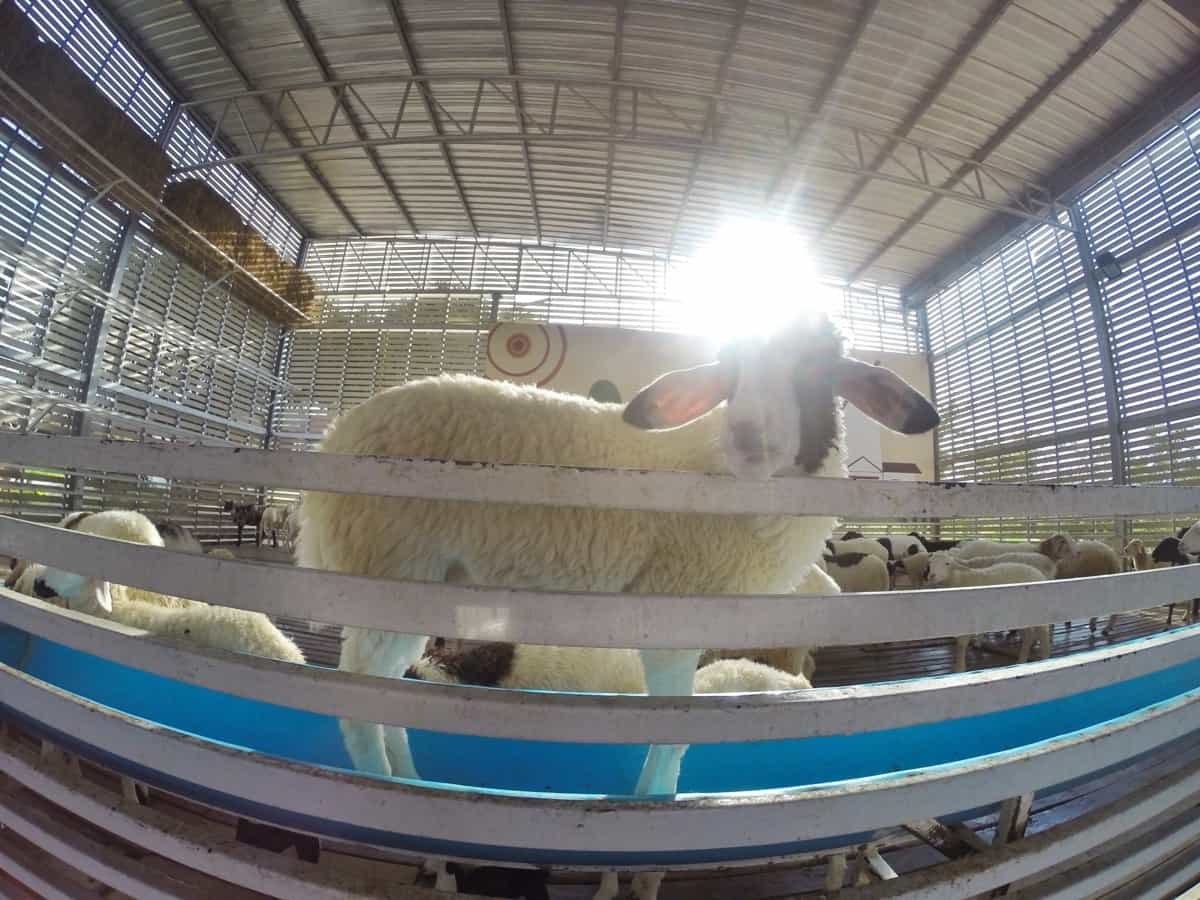
Additionally, automated lighting systems can mimic natural daylight patterns, contributing to enhanced productivity and reproductive success. Smart monitoring technologies allow farmers to remotely track environmental parameters such as temperature and humidity, enabling quick adjustments when needed. This level of precision ensures that sheep are always kept in a comfortable environment conducive to their growth and development.
Renewable Energy Solutions for Sustainable Sheep Farming
Renewable energy solutions are transforming the landscape of sheep farming by providing sustainable and eco-friendly power sources. Utilizing solar panels, wind turbines, and biogas systems can significantly reduce carbon footprints on farms while cutting down operational costs. By harnessing natural resources to generate electricity for farm operations, sheep farmers can create a more environmentally conscious production system.
Solar panels installed on barn roofs can capture sunlight and change it into energy to power lighting, heating systems, and other electrical needs. Wind turbines strategically placed throughout the farm can tap into the power of the wind to generate clean energy for various farm activities. Biogas systems that utilize organic waste from sheep manure can produce renewable energy while also effectively managing waste.
Embracing renewable energy solutions not only benefits the environment but also promotes self-sufficiency and resilience in sheep farming operations. With advancements in technology making these solutions more accessible than ever, integrating renewable energy into sheep farming practices is a promising step towards a greener future.
Utilizing Data Analytics for Optimal Sheep Farm Management
Farmers can make decisions to enhance productivity and efficiency on their farms. Through advanced technology, farmers can collect and analyze data related to sheep health, reproduction, feeding patterns, and more. This information allows them to identify trends, detect potential issues early on, and ultimately improve overall farm performance. With real-time monitoring systems in place, farmers can receive instant alerts regarding any deviations from normal behavior or health conditions in their sheep.
This proactive approach enables early intervention and ultimately improves overall herd welfare. Moreover, by analyzing historical data on weather patterns, pasture quality, and animal behavior, farmers can better plan grazing rotations and optimize resource allocation on the farm. This precision farming approach leads to more sustainable practices while maximizing efficiency.
Data analytics enables farmers to track individual sheep’s growth rates, monitor breeding success rates, and even predict optimal lambing times. With this level of precision management at their fingertips, farmers can ensure that each animal receives personalized care tailored to its specific needs.
In case you missed it: Protecting Your Flock: A Comprehensive Guide to Vaccination Schedule for Goats and Sheep
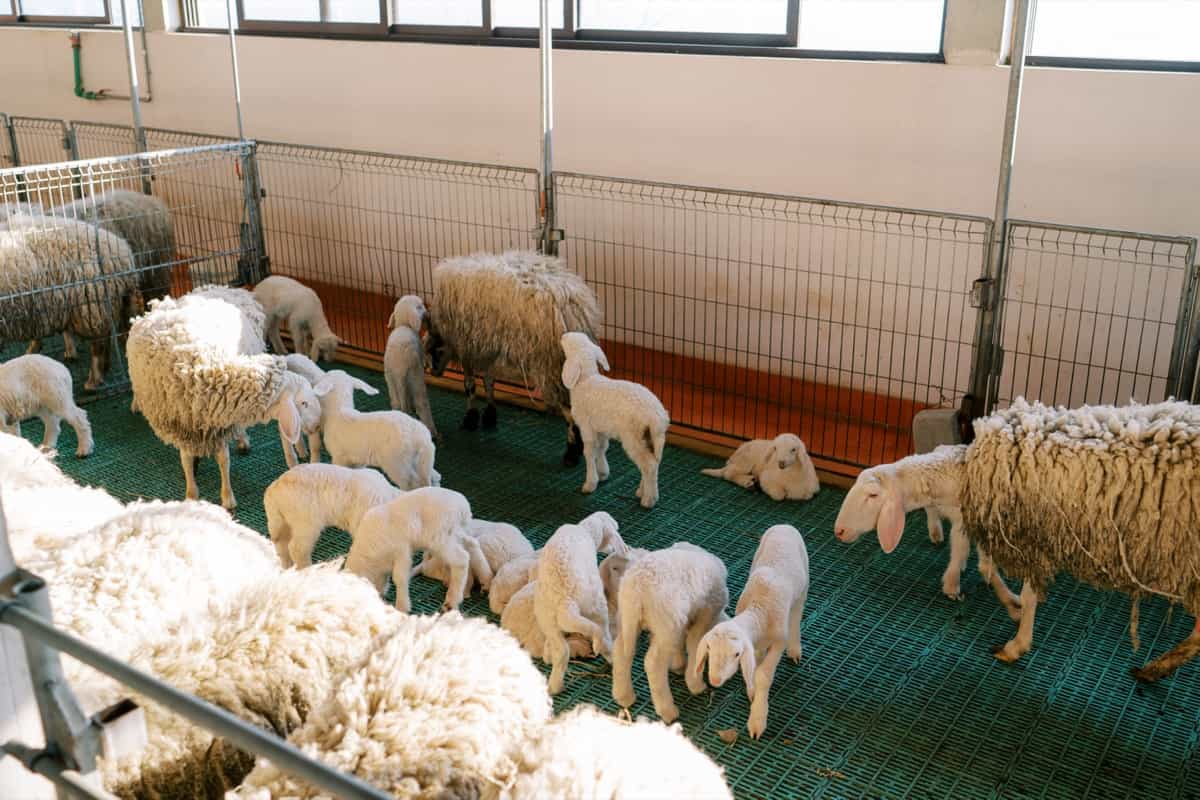
Enhancing Reproductive Efficiency with Advanced Techniques
Advancements in reproductive technologies have revolutionized the way sheep farmers manage breeding programs. By applying techniques such as artificial insemination and embryo transfer, producers can enhance genetic traits and improve overall flock productivity. These advanced methods allow for the selection of superior genetics to breed top-quality lambs with desirable characteristics like fast growth rates or high wool yields.
This precision breeding ensures a more efficient use of resources while maximizing the potential for profit in the market. Moreover, these techniques also enable farmers to shorten generation intervals, leading to faster genetic progress within their flocks. By carefully selecting which animals contribute to the next generation, producers can continuously improve their stock’s performance and adaptability to changing environmental conditions.
Smart Watering Systems for Efficient Sheep Farming
Smart watering systems have revolutionized the way farmers manage this essential aspect of sheep farming. These high-tech systems utilize sensors to monitor water levels in troughs, ensuring a constant supply without wastage. By automating the process, farmers can save time and resources while optimizing water usage. Smart watering systems also enable remote monitoring, allowing farmers to monitor water levels from anywhere through mobile applications or computer interfaces.
This real-time data helps prevent dehydration and ensures the flock’s well-being. With these advanced technologies, sheep farmers can rest assured that their animals are receiving the right amount of water at all times. Smart watering systems are not just convenient but also play a major role in enhancing efficiency on the farm.
Leveraging IoT for Comprehensive Sheep Farm Monitoring
With the IoT, farmers can now monitor their flocks in real-time, ensuring optimal health and productivity. Sensors placed on each sheep collect data on vital signs, activity levels, and even location. This information is then transmitted to a centralized system accessible from anywhere, empowering farmers to make informed decisions instantly.
By leveraging IoT for comprehensive farm monitoring, farmers can detect illness or distress signs, allowing for prompt intervention and preventive measures. This proactive approach not only improves animal welfare but also boosts overall farm efficiency. Additionally, IoT enables precise tracking of individual sheep performance metrics over time. Farmers can analyze trends and patterns to fine-tune management practices for better outcomes.
Cutting-Edge Parasite Control Methods in Sheep Farming
Modern sheep farming technology offers cutting-edge solutions for effective parasite control. The innovative method involves using targeted treatment strategies that focus on specific parasites while minimizing the impact on non-target organisms. This approach helps reduce resistance development in parasites, ensuring long-term effectiveness. Furthermore, advancements in diagnostic tools allow farmers to accurately identify parasite species and monitor their prevalence within the flock.
In case you missed it: Maximizing Health and Productivity with Precision Nutrition Strategies for Poultry Farming
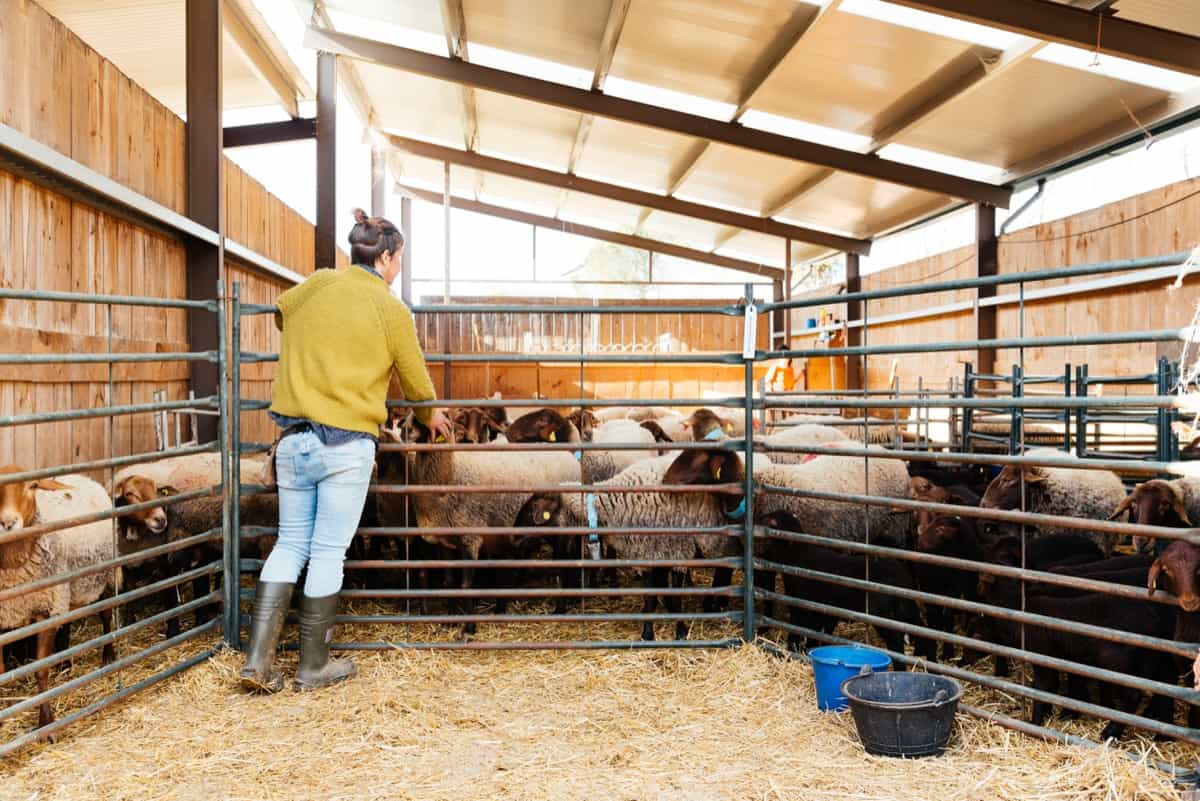
By understanding the parasite population dynamics, farmers can implement tailored control measures for optimal results. Integrated pest management techniques combine various control methods such as strategic pasture rotation, biological controls, and selective deworming protocols. These holistic approaches help minimize reliance on chemical treatments and promote sustainable parasite management practices.
From real-time health monitoring systems to sustainable grazing management practices, farmers now have access to a myriad of tools that enhance efficiency and productivity. By utilizing data analytics for farm management, farmers can make decisions that increase productivity. Sheep farmers who embrace these modern techniques are not only ensuring the welfare of their livestock but also securing a more profitable and environmentally friendly future for themselves and their communities.
- Ultimate Guide to Natural Vegetable Farming
- Natural Farming for Sustainable Livestock Management
- Dairy Farm Technology in India: The Future of Dairy Husbandry
- Comprehensive Guide to Organic Farming in Villages
- Modern Sheep Farming Technology: The Future of Sheep Husbandry
- Goat Farming Technology: The Future of Goat Husbandry
- How to Build a Low-budget Goat Shed: Cheap Ideas and Tips
- Goat Farming Training Programs in India: A Beginner’s Guide
- Types of Pesticides Used in Agriculture: A Beginner’s Guide
- Economical Aquaculture: A Guide to Low-Budget Fish Farming
- 15 Common Planting Errors That Can Doom Your Fruit Trees
- How to Make Houseplants Bushy: Effective Tips and Ideas
- Innovative Strategies for Boosting Coconut Pollination and Yield
- Pollination Strategies for Maximum Pumpkin Yield
- The Complete Guide to Chicken Fattening: Strategies for Maximum Growth
- Natural Solutions for Tulip Problems: 100% Effective Remedies for Leaf and Bulb-Related Issues
- Revolutionizing Citrus Preservation: Towards a Healthier, Greener Future
- Natural Solutions for Peony Leaf and Flower Problems: 100% Effective Remedies
- Maximizing Profits with Avocado Contract Farming in India: A Comprehensive Guide
- Natural Solutions for Hydrangea Problems: 100% Effective Remedies for Leaf and Flowers
- The Ultimate Guide to Choosing the Perfect Foliage Friend: Bringing Life Indoors
- From Sunlight to Sustainability: 15 Ways to Use Solar Technology in Agriculture
- The Ultimate Guide to Dong Tao Chicken: Exploring from History to Raising
- The Eco-Friendly Makeover: How to Convert Your Unused Swimming Pool into a Fish Pond
- Mastering the Art of Delaware Chicken Farming: Essentials for Healthy Backyard Flocks
- 20 Best Homemade Fertilizers for Money Plant: DIY Recipes and Application Methods
- How to Craft a Comprehensive Free-Range Chicken Farming Business Plan
- Brighten Your Flock: Raising Easter Egger Chickens for Beauty and Bounty
- How to Optimize Your Poultry Egg Farm Business Plan with These Strategies
- Subsidy for Spirulina Cultivation: How Indian Government Schemes Encouraging Spirulina Farmers
- Ultimate Guide to Raising Dominique Chickens: Breeding, Feeding, Egg-Production, and Care
- Mastering the Art of Raising Jersey Giant Chickens: Care, Feeding, and More
- Ultimate Guide to Raising Legbar Chickens: Breeding, Farming Practices, Diet, Egg-Production
- How to Raise Welsummer Chickens: A Comprehensive Guide for Beginners
- How to Protect Indoor Plants in Winter: A Comprehensive Guide
- Ultimate Guide to Grow Bag Gardening: Tips, Tricks, and Planting Ideas for Urban Gardeners

